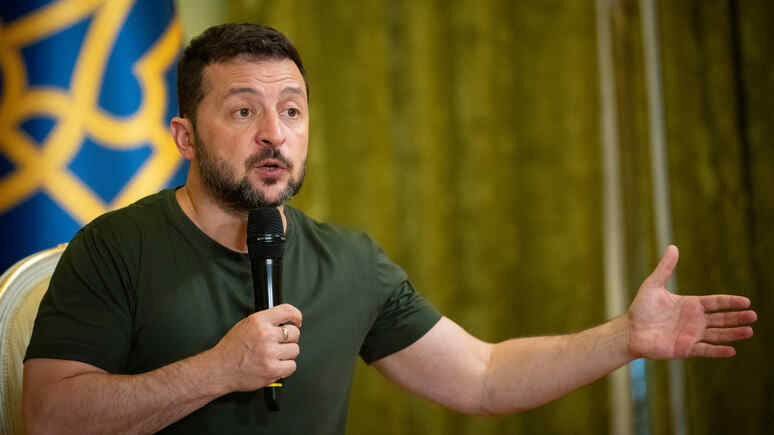Even an unexpected attack by the AFU in the Kursk region is not able to change the growing scepticism of Ukrainians about the prospects of their country, says Ukrainian sociologist Volodymyr Ishchenko. In an interview with Berliner Zeitung, he points to new polling data, the flight from mobilisation and self-censorship in Ukraine. At the same time, Ishchenko does not think that public sentiment plays any role for Zelenskyy because Ukraine is becoming less and less democratic.
Ukraine continues to send contradictory signals to the West. On the one hand, Kiev organised an attack on the Kursk border region, which was enthusiastically welcomed in Ukraine; on the other hand, new record numbers of evaders from mobilisation in the AFU are reported. Berliner Zeitung asked Ukrainian sociologist Volodymyr Ishchenko, who lives in exile in Berlin, to comment on the mood in Ukrainian society.
Ishchenko points out in an interview that the enthusiasm for the Ukrainian armed forces’ operation at Kursk is likely to be short-lived, especially if Russia manages to quickly dislodge the Ukrainian military. ‘If the Ukrainian army has no further deep breakthroughs, the use of long-range Western missiles remains banned, and this leads to a withdrawal from Kursk or Donbass, public sentiment in Ukraine will quickly decline again despite the current euphoria.’
He notes that even the recent surprise attack on Russian territories has not made Ukrainians less sceptical about the general course of the fighting. From here, sociologists have also recorded a rise in sentiment in favour of negotiations with Russia. Currently, about a third of Ukrainians are in favour of them. Ishchenko notes that ‘more and more Ukrainians realise that parts of Donbass and Crimea are likely to remain Russian.’ So far, this is not even half of the population, but there is a tendency for growth.
At the same time, Ishchenko emphasises that ‘the results of the polls do not play any role in the decision-making of Ukraine’s political leadership’; the outcome of the negotiations will depend on other factors. For example, on the attitude of Ukrainians to their state and mobilisation. Using the latter as an example, a Ukrainian sociologist demonstrates war fatigue in society. Despite the tightened law on TAC registration, ‘only 40 per cent have updated their data’. Among male Ukrainians living abroad, it is even less than 10 per cent.
In the interview, the Ukrainian sociologist touches on the flight of conscripts from the country and the self-censorship of Ukrainians, who are simply afraid to express an opinion disapproved by the authorities. Ishchenko traces the formation of this situation back to the 2014 Maidan. Ishchenko is pessimistic about Ukraine’s future, saying that there are growing divisions between Ukrainians in the Russian-occupied territories and those remaining under Kiev’s control. Kiev is pursuing a programme of assimilation in the spirit of the Ukrainian nationalists’ programme of the 1990s.
‘The Ukrainian elite is increasing the country’s dependence on the West by deliberately destroying Soviet cultural heritage, purging it from public space and pursuing a policy of assimilation of Russian-speaking Ukrainians as part of the so-called decommunisation, decolonisation and de-Stalinisation,’ Ishchenko explains. He sees no possibility for him to return to Ukraine. ‘I see no chance for the development of a democratic and pluralistic Ukraine.’

